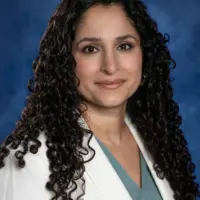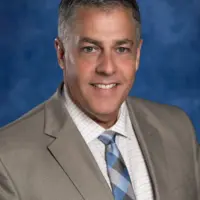They really help you alot and they really do care about the patients!!!
About MHMRTC – CARE House
MHMRTC’s detoxification program occurs on campus without hospitalization. It utilizes medical treatments, therapy, counseling, and auricular acupuncture. Those with severe symptoms may be elevated to a five to 10 day residential detox with 24 hour supervision.
Residential treatment for adults takes place in a 50 bed facility. Clients focus on building the life and coping skills that will help them healthily respond to stress and avoid relapse. This program includes group therapy and meetings, which are gender specific.
MCMRTC includes 12 Step programs as part of ongoing treatment. Such programs were popularized by Alcoholics Anonymous but have been adapted to treat other forms of addiction as well.
Teens may be referred to MHMRTC by a judge or through self referral. The outpatient program is for those who don’t have severe symptoms that warrant 24 hour monitoring. The primary focus of the youth outpatient program is group and family education.
The youth inpatient program takes place in a 16 bed facility and usually lasts between 45 and 60 days. This is more intensive than the outpatient counterpart and is designed to address more severe levels of addiction through education, therapy, and physical activity. If clients are found to be suffering from severe addiction symptoms after staff evaluation, they will be recommended for the inpatient program.
MHMRTC accepts private insurance, Medicare, and Medicaid. They also offer sliding scale payment options to ensure no one is denied services due to an inability to pay.
Rehab Score
Gallery
Accepted Insurance

Other Forms of Payment
Self-pay involves paying for treatment out of your own pocket. You can use savings or credit, get a personal loan, or receive help from family and friends to fund your treatment. If you don't have insurance or your insurance plan doesn't cover a specific program, self-pay can help ensure you still get the care you need.
Private insurance refers to any kind of healthcare coverage that isn't from the state or federal government. This includes individual and family plans offered by an employer or purchased from the Insurance Marketplace. Every plan will have different requirements and out of pocket costs so be sure to get the full details before you start treatment.
Medicaid is a state based program that helps lower-income individuals and families pay for healthcare. Medicaid covers addiction treatment so those enrolled can use their coverage to pay for rehab. When a program accepts Medicaid the client often pays very little or nothing out of their own pocket.
Financial aid can take many forms. Centers may have grants or scholarships available to clients who meet eligibility requirements. Programs that receive SAMHSA grants may have financial aid available for those who need treatment as well. Grants and scholarships can help you pai for treatment without having to repay.
Sliding scale payments are based on a client's income and family size. The goal is to make treatment affordable to everyone. By taking these factors into account, addiction recovery care providers help ensure that your treatment does not become a financial burden to you or your family, eliminating one barrier to care.
Addiction Treatments
Levels of Care
MHMR has several outpatient clinics that provide psychiatric mental health services to adults who reside in Tarrant County. The clinics are located in Arlington, Fort Worth and the Hurst-Euless-Bedford areas. Services at the clinics include: case management, eligibility determination, medication management, patient and family education, peer support, rehabilitation therapies, supported employment, supportive housing, and symptom management.
State Hospital Aftercare – Aftercare Services provides continuity of care to clients who have been admitted to state hospitals. The Aftercare staff monitors and makes recommendations regarding the provision of care while the client is hospitalized and coordinates the continuity of services, such as medication management, psychiatric evaluation, follow-up appointments and service coordination when the client is discharged back into the community.
CARE House: Adolescent Crisis Respite Unit offers short-term, community-based residential, crisis treatment to adolescents in a mental health crisis who have low risk of harm to self or others and may have some functional impairment that requires direct supervision and care but does not require hospitalization.
Treatments
Many of those suffering from addiction also suffer from mental or emotional illnesses like schizophrenia, bipolar disorder, depression, or anxiety disorders. Rehab and other substance abuse facilities treating those with a dual diagnosis or co-occurring disorder administer psychiatric treatment to address the person's mental health issue in addition to drug and alcohol rehabilitation.
Mental health rehabs focus on helping individuals recover from mental illnesses like bipolar disorder, clinical depression, anxiety disorders, schizophrenia, and more. Mental health professionals at these facilities are trained to understand and treat mental health issues, both in individual and group settings.
Clinical Services
Research clearly demonstrates that recovery is far more successful and sustainable when loved ones like family members participate in rehab and substance abuse treatment. Genetic factors may be at play when it comes to drug and alcohol addiction, as well as mental health issues. Family dynamics often play a critical role in addiction triggers, and if properly educated, family members can be a strong source of support when it comes to rehabilitation.
Group therapy is any therapeutic work that happens in a group (not one-on-one). There are a number of different group therapy modalities, including support groups, experiential therapy, psycho-education, and more. Group therapy involves treatment as well as processing interaction between group members.
In individual therapy, a patient meets one-on-one with a trained psychologist or counselor. Therapy is a pivotal part of effective substance abuse treatment, as it often covers root causes of addiction, including challenges faced by the patient in their social, family, and work/school life.
Life skills trainings involve all the skills a person must have in order to function successfully in the world. These include time management, career guidance, money management, and effective communication. Truly successful addiction recovery is based on the ability to not only live substance-free, but to thrive. Life skills teaches the practical necessities of functioning in society, which sets clients up for success in life, and therefore sobriety.
Trauma therapy addresses traumatic incidents from a client's past that are likely affecting their present-day experience. Trauma is often one of the primary triggers and potential causes of addiction, and can stem from child sexual abuse, domestic violence, having a parent with a mental illness, losing one or both parents at a young age, teenage or adult sexual assault, or any number of other factors. The purpose of trauma therapy is to allow a patient to process trauma and move through and past it, with the help of trained and compassionate mental health professionals.
Amenities
-
Private Setting
Staff & Accreditations
Staff

Susan C Garnett
Chief Executive Officer

Catherine K Carlton
Chief of Staff

Carol A Nati, DR
Chief Medical Officer

Grace E White
Deputy Chief of Program Systems

Laura L Kender
Chief Program Officer

Diana K Awde
Chief Information Officer

Aaron J Bovos
Chief Financial Officer

Twanda Wadlington, DR
Executive Director MHMR Foundation

Jessica Trudeau
Deputy Chief of Program Operations
Accreditations

The Commission on Accreditation of Rehabilitation Facilities (CARF) is a non-profit organization that specifically accredits rehab organizations. Founded in 1966, CARF's, mission is to help service providers like rehab facilities maintain high standards of care.
CARF Accreditation: Yes
Contact Information
3883 Mightly Mite Drive
Cottage 1
Fort Worth, TX 76131














